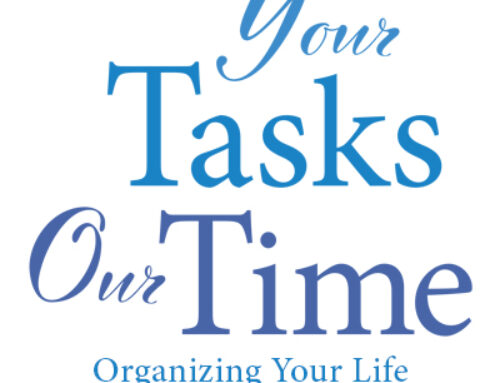 Let’s face it we all have the same 24 hour day, so it’s not really time we need to manage, it’s ourselves we need to manage. According to experts, during the last 25 years, our leisure time has declined by 37% while our work week has increased by a full day.
Let’s face it we all have the same 24 hour day, so it’s not really time we need to manage, it’s ourselves we need to manage. According to experts, during the last 25 years, our leisure time has declined by 37% while our work week has increased by a full day.
Make Time for Yourself
This means we need to be sure to make time for ourselves first. If we don’t take care of ourselves, then in the long run we will not be able to take care of anyone else. That includes eating well, exercising, meditating a few minutes a day and spending time with family and friends.
Set Daily Priorities
The best way to so this is to set daily priorities and intentions. Setting daily priorities creates a space for achieving your goals. It gives you a clear focus so the mind can hone in the day’s activities. Spending 10 to 15 minutes every morning mapping out your day can save up to 6 hours a week.
Scheduling
Now that you have your list of priorities it’s time to put them on the calendar. Schedule appointments with yourself to complete priority work. This will block out the space you need to get your tasks completed in a timely manner. Be sure to schedule the most important tasks at a time of day that you are most productive. If you are a morning person, then do your most important task first thing in the morning.
- Put your personal & business schedules into one calendar so you have a snapshot of all your commitments at a glance. If you need several calendars for work, home and kids, then consider something like Google calendars that allows you to create a separate calendar for everyone in the family that can be snapped together as one calendar and separated on an as needed basis.
- Go over your schedule each evening for the next day. This will actually help you sleep at night by preventing some of the list making that goes on in our heads when we wake up in the middle of the night.
Tasks
Try not to plan too much in one day. Too many items on a to-do list can create paralysis instead of action. Adding fewer more important tasks versus a long list of less important tasks forces you to focus on what is really essential in your day.
- Prioritize your list so that you get the most important items completed first
- Break projects down into actionable steps
- Add any info you need to complete the task—phone #, links, addresses, etc
- Separate work and personal tasks
- Group tasks together like all phone calls, all errands, similar writing projects
- Avoid multitasking. It takes the brain four times longer to recognize and process each time you change gears to a new task. If you switch back and forth constantly you are wasting valuable time.
- Consider timing your tasks to give you a more accurate idea of how long certain activities take each day. This will help you to better plan your time.
Parting thoughts:
- Most people are dis-organized because their organizing systems don’t match their current lives. If you are using the same system now that you used in college or when you first started working, then it’s not going to work.
- Using a new organizing system takes time and practice. There is no one size fits all. If you have been doing the same thing for 20 years and you implement a new system then you may need to give it a little time.
Darla Pompilio






